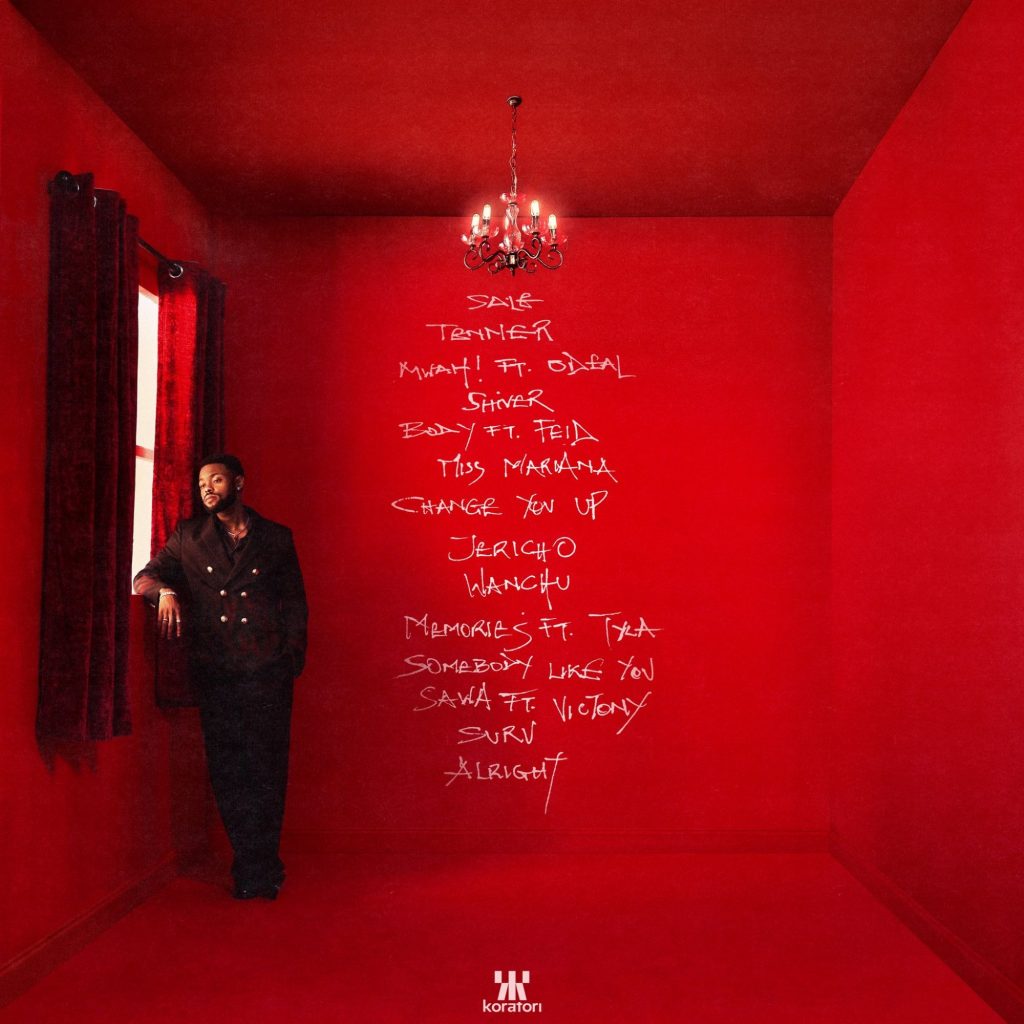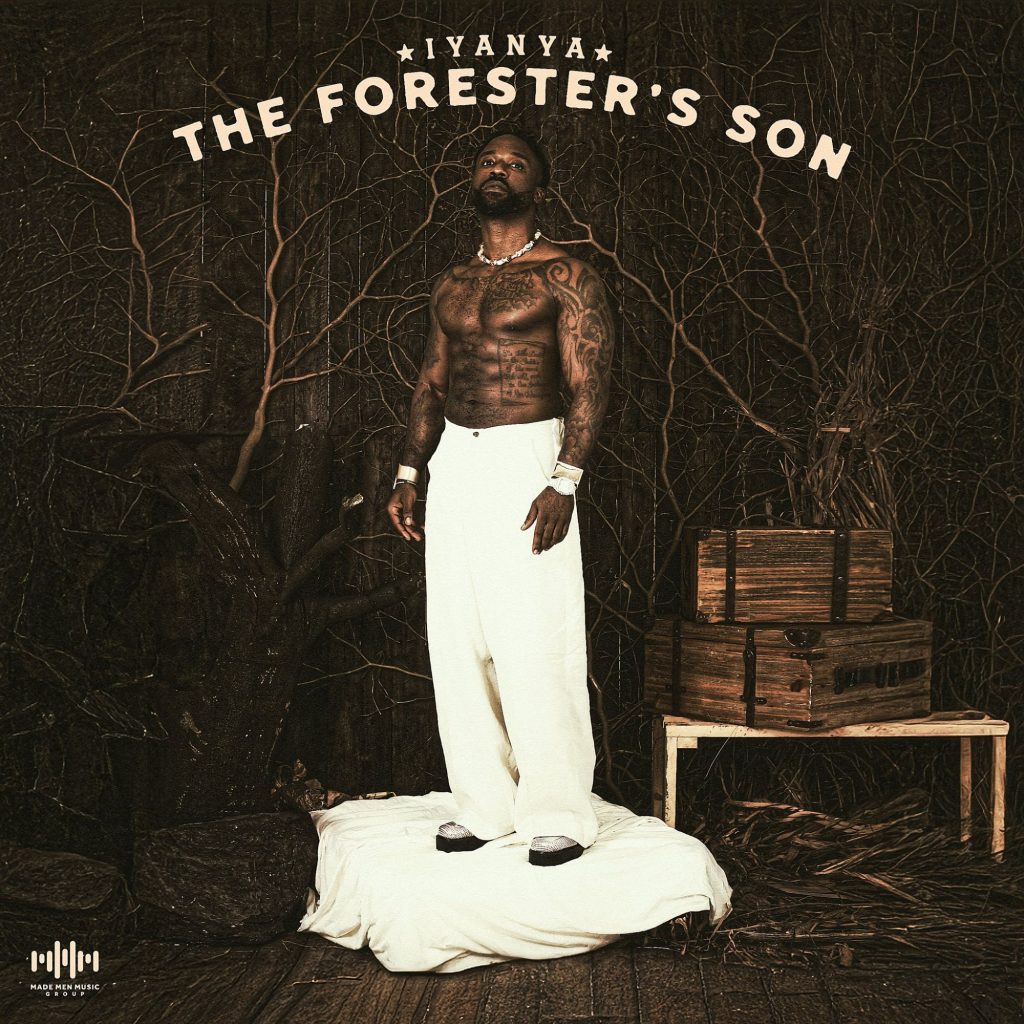On his debut album, Lojay leaves his comfort zone and consequently, leaves little of himself in the music too.

Lojay might have risen to prominence through the smash hit success of Monalisa—an elite Afro-House song that was a pivotal record in pioneering the Amapiano-fusion craze in the mainstream—however, his talent has always shone the brightest on R&B centric records and midtempop bops, that allowed him utilize the empirical storytelling in his arsenal.
Basically, Lojay is one of the best writers around and his skillset thrives better in soundcapes, where there are more emphasis on cadence rhythm and storytelling, rather than simply riding the beat. His very best songs have him weaving the most sublime metaphors and channeling very raw emotions that makes the music emotionally resonant.
On the sensual Tonongo, he’s lauding his love interest with claims of her booty winning the “ass cheek Ballon D’or” and on the heartbreak anthem, OVA—he’s wailing that his love interest hung his feelings on the ceiling, a double entendre for hanging things out to dry in a bid of abandonment and also committing emotional suicide.
Profound metaphors are his bread and butter, as well as the stories he weaves around them so the reason why he chooses to abandon this core element of his artistry is astonishing to say the least. The logic isn’t lost on this writer, of course. Despite having an affinity for R&B, Lojay is still foremost a pop singer who has notably struggled to score hits since his breakout single, so it makes sense to pivot. However, such deviation shouldn’t come at the cost of his sonic identity.

Salê is classic Lojay and the right way to open the album. The first half is a ballad, where Lojay bares himself totally without holding back and assures his lover that she’s the one missing piece that can complete him. Like a true yearner, he claims he’s been saving himself for her, like a religious fanatic waiting on the fulfillment of a prophecy. Here on out though, things take an interesting turn.
Tenner is up next and make no mistake, this is a bop. It straddles a very fine line between the log drums Amapiano template and kinetic pop beats. And while Lojay glides on the beat and even strums out some memorable lines—despite the hook being very weak—this song is very emblematic of the shortcomings of this album.
It’s a pop song that prioritizes bounce over melodies, so it’s not as soulful as his best records and he can’t weave those heartfelt stories with punchy metaphors that usually stand out. Mwah! ever so buttresses this point further. It’s a song so stripped of melodies, any fella with the faintest grasp of their vocal mastery could sing it the way Lojay did. And guess what? The lyrics don’t venture beyond superficial beauty adulations either.
Gone is the loverboy, swooning Lojay on records like Moto and IYD or the unrepentant fuckboy Lojay on LEADER! and AVAILABU. AVAILABU is an interesting mention because that’s a similar foray into Amapiano by him, yet his writing remains undiluted and still packs the same punch. On the chorus, he’s claiming his lover is thicker than lava and contrasting sex with her to putting faith into holy fire. Once again, it’s with poignant writing like this he thrives best but it’s lacking on most songs on this LP.

Shiver is cut from the same sonic fabric of Tenner, except the shakers and log drums have been ditched. It’s a much better song than Mwah! and is very much a good thing in itself, but any decent artist worth their salt could have sang this song. There is nothing Lojay says on this song that is uniquely and unmistakably him. His vocal delivery and cadence is very much competent as always, but there is hardly any personality here.
Body is a much needed improvement and heads into EDM and Techno music territory. Indeed, it’s not familiar Lojay territory but the problem has never been the experimentation but the execution in itself. Despite it being a refreshing deviation from the log drums infested soundscape, midway into the song Lojay finds a pocket where he goes off into an iconic run of his and he likens the cost of dealing with a woman’s shenanigans to paying a bail, because he’s a prisoner to her ways. This is classic Lojay.
Miss Mariana remains mostly on track and sounds like an extended play of LV N ATTN, due to the midtempo Afro-Swing bounce. Lojay’s metaphors remain strong and when he sings about his pillows reeking of his lover’s scent and compares his “thing” to a Javelin, it makes for a very vivid and raunchy atmosphere. Log drums return on Change You Up but it’s deplored in a creative way.
It’s an Afro-pop record, but the beats are arranged in an intermittent pulsing fashion—allowing Lojay to ride the rhythm to a crescendo on his second verse. There is a pocket he finds where he matches the beat’s rhythm and becomes one with it—by deploring catchy one-liners and repetitive anchor lines. It’s standard living large and partying hard stuff, but his swagger is so immaculate and his delivery is equally infectious.
Asides the pre-released single, Somebody Like You which is one of the best songs of the year—Jericho is the closest thing to loverboy, swooning Lojay on this album. I mean, he goes as far as comparing the fire burning in the pit of his stomach for his lover to the one that plagued Shedrack, Mesach and Abednego. It’s impossible for metaphors like these not to tug at your heartstrings.
Unfortunately, after the impressive four track sequence—the album reverts back to the symptoms that plagued its opening track sequence. Memories is scarce with melodies like Mwah! The drums might be licentious and the bashment twist to it, certainly does elevate it—however it’s far from the elite song it could have been. Make no mistake, it’s a good song but quite the waste of two talented, soulful singers like Lojay and Tyla. The same way an accomplished vocalist like Odeal was wasted on Mwah!
Lojay continues playing with minor melodies on Sawa, an Afro-pop song with visceral drums and African percussion. Another feature, another waste of talent. Victony’s rich vocals are magic on highlife infused templates or melodic ones, where they can have a stark, rich contrast with the other artist’s. There is barely any melodic contrast here when both artists are using minor melodies.
Lojay gets introspective on Suru, where he confesses that he’s still battling his demons despite his success and he’s going to keep them subdued, so they don’t compromise him. His voice is mellow and the ambience is tempered with sombre violin riffs, despite the uptempo rhythm. It’s better than the songs before it, but nowhere near Lojay’s best.

His introspection continues on the album closer, Alright and it’s here he allows the listeners a closer look into the dark corridors of his psyche. He hints at infidelity, despite claiming to love his girlfriend. This admission of guilt might be a little jarring to the ears, because of how earnest Lojay usually is—whether he’s on loverboy or demon time—but it works in the song, because he’s documenting the life on the fast lane and iterating the demands of being a superstar. It might not be pleasant to the ears, but it’s reality. His reality.
Lojay’s XOXO is in no way a bad album and is in fact, a good one. Matter of fact, it would be considered better than decent if it came from anyone else. But it’s from Lojay—one of Afrobeats best writers and musicians at crafting emotive, heartfelt records and this just isn’t the best application of his talent. Evolving his sound was the right thing to do, but along the way—he loses some essence of his artistry and it doesn’t necessarily translate well. It’s a shame because the few times it does, the songs are really good.
The title and branding also leaned into roses and red visual aesthetics. The choice of singles didn’t help prime listeners for this album either. The title alluding to “hugs and kisses” implies that it would be an intimate, heartfelt album rife with emotions. But it’s not that at all. This is just another good pop album, sparsely littered with emotive songs and in this writer’s opinion, a Lojay’s album shouldn’t sound that way.
Final Verdict:
Sonic Cohesion: 1.5/2
Expansive Production: 1.2/2
Songwriting: 1.4/2
Delivery: 1.5/2
Optimal Track Sequencing: 1.4/2
Total: 7.0/10






